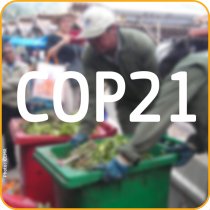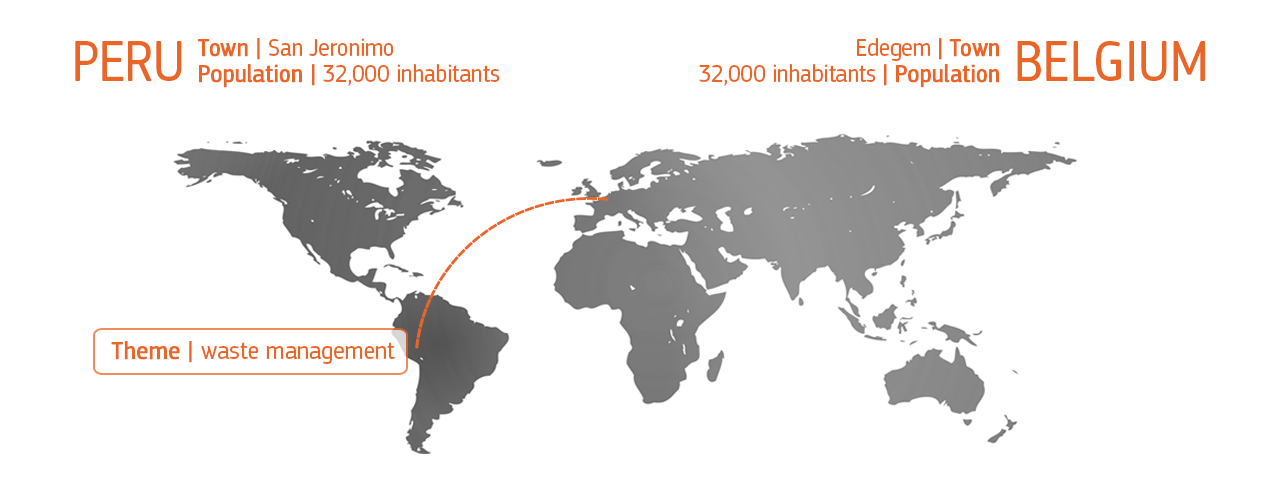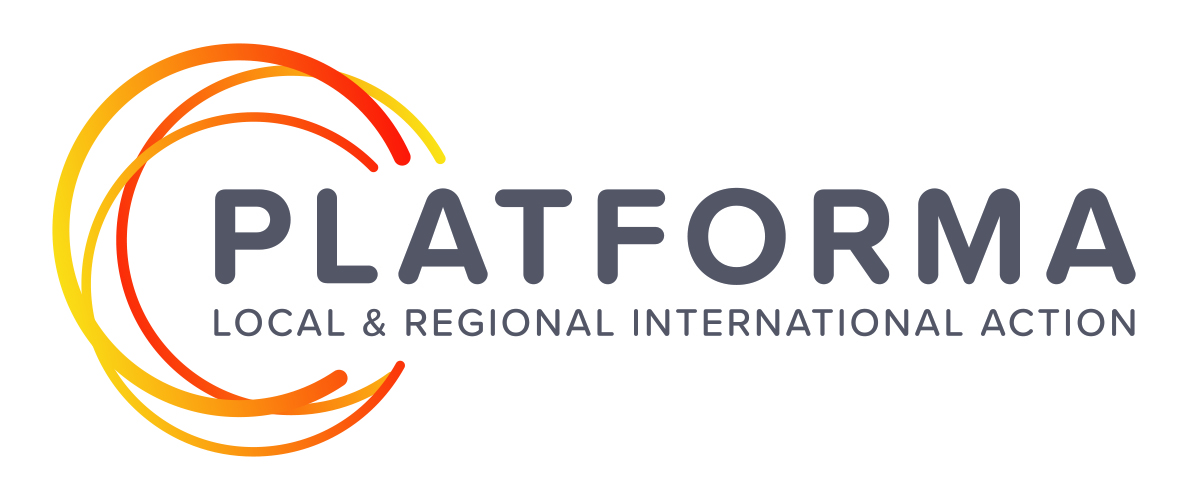Home /
News /
In-depth news /
COP21
next > < previous

PLATFORMA - Local & regional international action

COP21 - 30.11.2015
From words to action: San Jeronimo and Edegem cooperate against climate change
The partnership between the Belgian town of Edegem, and the Peruvian municipality of San Jeronimo has been so successful that many other localities in the Latin American country come to visit and study the project that composts organic waste and uses it for agriculture.
Edegem and San Jeronimo are small cities. Edegem is a municipality located in the Belgian province of Antwerp, in Flanders, and has a population of about 22,000 inhabitants. San Jeronimo is a municipality in the Andes mountains, at a height of ± 3500 metres, within ten kilometers of the tourist centre of Cusco, home to some 32,000 inhabitants.
The many thousands of tourists visiting this former Incan city of Cuzco do not bother going to San Jeronimo, but many Peruvians do. Residents believe that the project initiated in partnership with Edegem is the driving force behind the local economy.
Betty De Wachter, head of unit for international affairs at the Association of Flemish local authorities, the Dutch-speaking part of Belgium, explained that it took some time before the idea of the project materialised.
San Jeronimo developed a city link with the municipality of Edegem in 2004. At first, the two municipalities embarked on a small-scale collaboration, with the Flemish city providing finance for local NGOs to support local libraries and provide animation sessions for children. This initiative helped establish good contacts between the two cities and their envoys started discussing the problems surrounding the big market of Vinocanchón, in the territory of San Jeronimo, which boasts more than one thousand merchants a day and produces a lot of organic waste.
This is how, during the small-scale library project apart, they started discussing waste management. But waste management was also an issue, because Peruvian villagers and townspeople live together with their animals, and in their houses a lot of organic waste is produced and builds up. Before the project was put in place, organic waste was being placed in a dump and was left to rot or burn. Nobody seemed to care about the environmental impact.
The full article is available on Euractiv's website.

Edegem and San Jeronimo are small cities. Edegem is a municipality located in the Belgian province of Antwerp, in Flanders, and has a population of about 22,000 inhabitants. San Jeronimo is a municipality in the Andes mountains, at a height of ± 3500 metres, within ten kilometers of the tourist centre of Cusco, home to some 32,000 inhabitants.
The many thousands of tourists visiting this former Incan city of Cuzco do not bother going to San Jeronimo, but many Peruvians do. Residents believe that the project initiated in partnership with Edegem is the driving force behind the local economy.
Betty De Wachter, head of unit for international affairs at the Association of Flemish local authorities, the Dutch-speaking part of Belgium, explained that it took some time before the idea of the project materialised.
San Jeronimo developed a city link with the municipality of Edegem in 2004. At first, the two municipalities embarked on a small-scale collaboration, with the Flemish city providing finance for local NGOs to support local libraries and provide animation sessions for children. This initiative helped establish good contacts between the two cities and their envoys started discussing the problems surrounding the big market of Vinocanchón, in the territory of San Jeronimo, which boasts more than one thousand merchants a day and produces a lot of organic waste.
This is how, during the small-scale library project apart, they started discussing waste management. But waste management was also an issue, because Peruvian villagers and townspeople live together with their animals, and in their houses a lot of organic waste is produced and builds up. Before the project was put in place, organic waste was being placed in a dump and was left to rot or burn. Nobody seemed to care about the environmental impact.
The full article is available on Euractiv's website.
 shqiptar
shqiptar български
български hrvatski
hrvatski čeština
čeština dansk
dansk Nederlands
Nederlands English
English eesti keel
eesti keel suomi
suomi Français
Français საქართველოს
საქართველოს Deutsch
Deutsch ελληνικά
ελληνικά עברית
עברית íslenska
íslenska italiano
italiano Gaeilge
Gaeilge latviešu valoda
latviešu valoda lietuvių kalba
lietuvių kalba magyar
magyar македонски
македонски Malti
Malti norske
norske polski
polski português
português română
română Serbian
Serbian slovenčina
slovenčina slovenščina
slovenščina español
español Türkçe
Türkçe svenska
svenska український
український

















































